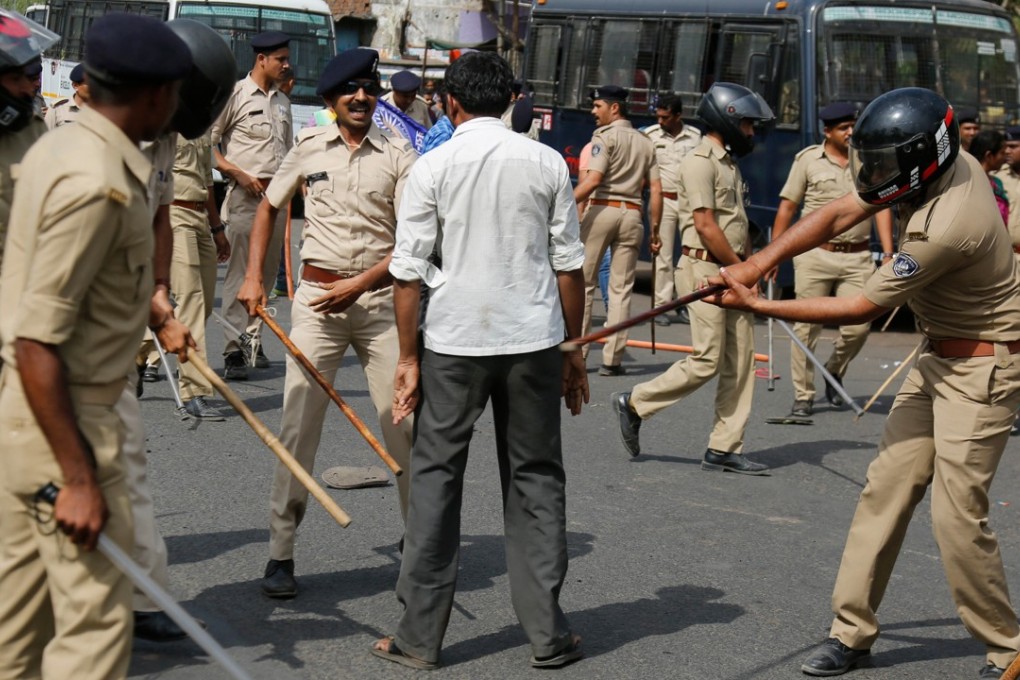Seven killed as India’s lowest caste Dalits lead street protests against court order
Protests came after the Supreme Court barred the immediate arrest of people accused of discriminating against Dalits, who are at the bottom of India’s ancient caste hierarchy

Low-caste Dalits fought street battles with police that left at least seven dead as protests against a Supreme Court rights ruling swept across large swathes of India.
Protesters on Monday clashed with security forces, attacked buses and government buildings, and blocked trains and major roads.
Four people were killed in the central state of Madhya Pradesh, where police also imposed a curfew, Indian television channels reported. Three others were killed in other states, local media said.
Trouble was also reported in the capital New Delhi, and Punjab and Bihar states.
The “Bharat Bandh” – or India shutdown – protest was called by groups representing the Dalits, once condemned as the “untouchables”, who make up 200 million of India’s 1.25 billion population and are at the bottom of the caste hierarchy.
They are angry at a Supreme Court ruling that banned the automatic arrest of the accused in cases under a special law to protect marginalised groups who suffer widespread discrimination.